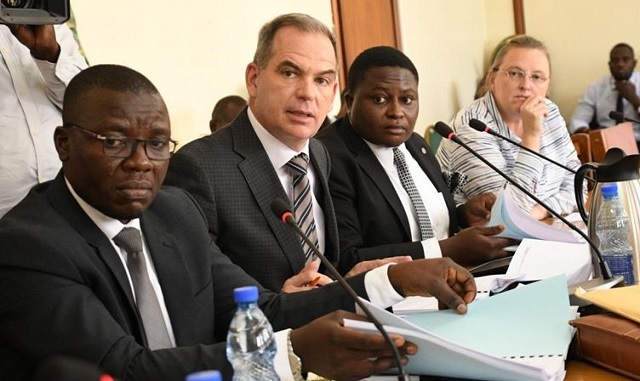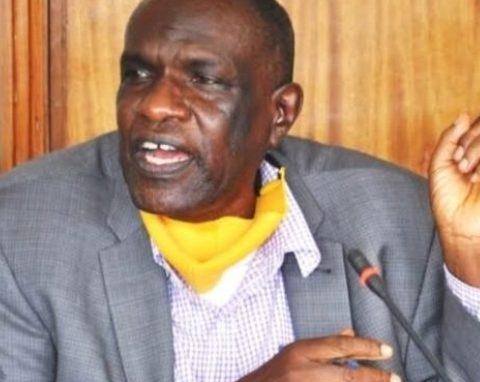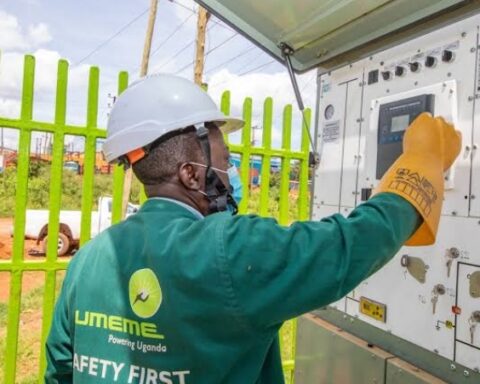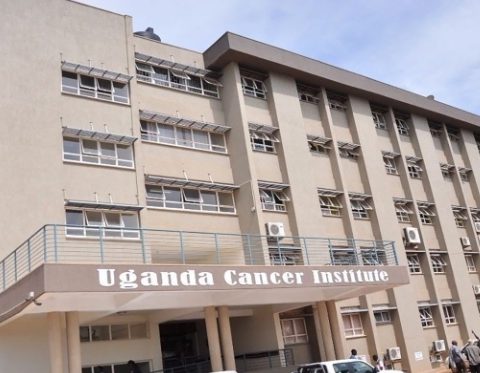The Finance Committee of parliament and Roko Construction Limited have disagreed on the alternative financing possibilities for the company. The committee is considering a proposal from the government to purchase 150,000 shares worth Shillings 202.13 billion in Roko Construction Limited payable over five years.
The transaction, according to the Ministry of Finance, is intended to provide financial support to Roko, so that it has the necessary liquidity to meet its operational needs and other obligations. The payment will consist of shares purchased at a per value worth 150 billion Shillings and a share premium value estimated at 57.6 billion Shillings.
Last week, the State Minister for Finance, Henry Musasizi told parliament that Roko is facing severe liquidity challenges that have constrained its ability to execute contracted projects that have adversely affected payments to its various suppliers and the financial sector.
The company’s indebtedness, as of May 31, 2022, stood at Shillings 202.4 billion. It also has contingent liabilities from bank guarantees for ongoing projects worth Shillings 130.9 billion while its indebtedness to financial Institutions totals Shillings 35.7 million and US$ 20.7 billion. Dues to local suppliers stand at Shillings 46.8 billion.
While appearing before the Finance Committee, Koehler Mark, the managing director of Roko Construction Limited and their consultant Joseph Kibuuka, the MPs questioned whether the company had considered other alternatives to recover from its financial crisis.
Muhammad Muwanga Kivumbi, the Butambala County MP questioned whether Roko would be comfortable if the required 202 billion Shillings is deposited with the Uganda Development Bank-UDB for onward lending to the construction company.
“If the government has given you projects worth Shillings 696 billion…you require 202 billion, why don’t you ask for an upfront payment so that you sort out these issues?” Kivumbi queried.
In the government’s proposal before parliament, Roko’s liquidity situation arose primarily from delayed payments on major projects, failure to refinance expensive Shilling loans with cheaper external financing, and the impact of the COVID-19 pandemic on the construction industry, escalation of financing costs and weak Corporate Governance and inadequate management.
Roko currently has projects with signed contracts worth Shillings 1.064 trillion of which Shillings 696.6 billion are the government of Uganda projects. Out of the Shillings 1.064 trillion worth of contracts, Shillings 292 billion equivalent works remain uncompleted.
Herbert Tayebwa Musasizi, the Kashongi County MP questioned Roko officials why they had not made a listing on the stock exchange to raise the required money from floating shares other than running to the government to ask for a bailout in terms of preference shares.
Tayebwa added that the only advantage of preference shares is that one gets precedent on the dividend if the company is making profits or on sharing on the company in case it winds up.
“Unfortunately with preference shares, you are not involved in any strategic decision because you don’t have voting rights. Therefore, government going into this would not actually have any impact on the decision that the directors of the company would take,” he emphasized.
Tayebwa insisted that Roko considers listings on the stock exchange other than looking at the government.
Xavier Kyooma, the Ibanda North MP questioned whether Roko was giving government shares or it was an issue of borrowing. “We need to understand this…are you actually giving government shares or you are borrowing? You are giving preference shares and not ordinary shares where the government will not participate in decision making like others,” Kyooma said.
He added that these are redeemable preference shares meaning that at any time, Roko can decide to redeem the shares, and the government is kicked out. “Are you actually interested in looking for a shareholder or it is a form of borrowing?” Kyooma asked.
In response to the queries by MPs, Roko Managing Director Koehler Mark said that they are happy about the government becoming a shareholder in Roko and that he doesn’t see a reason to look at other alternatives.
He appealed to parliament to consider the government’s proposal to inject Shillings 202.4 billion into Roko, saying that this will enable the stability restoration effect to the banks occasioned by the settlement of existing obligations by Roko.
Koehler, who appeared along with his sister who doubles as a Director in Roko, Koehler Briotte, and their lawyer Paul Jacob Batte, said that the preference share investment by the government would be paid back within 8 years.
Joseph Kibuuka, the Roko Consultant said that part of their risk management is the need to reduce debt and that if they contemplated moving to another lender, they would defeat the option of increasing their leg-room should they need funds.
Asked what Roko would do if parliament said no to the proposed venture by the government, Kibuuka said that the effects of the government not investing would severely affect the financial sector and the different suppliers to the company.
He added that the benefits to the jobs that Roko holds are only guaranteed if the investment by the government succeeds. According to documents before the committee, Roko Construction Limited employs 1,945 Ugandans and up to 13,000 induced jobs.
Kibuuka further told MPs that governance improvements in the company are ongoing to improve the separation of roles and stewardship to keep risks at a minimal level. He also said that they have expanded representation to the board to include 2 members to represent government interests while providing expertise.
In October 2019, President Yoweri Museveni directed the Minister of Finance, to negotiate Govemment’s acquisition of shares in the Company. “The President’s directive was premised on the following: The absence of a government-owned construction company, which subjected the government to the use of private companies that are nearly wholly foreign-owned and domiciled. The government currently spends 950 billion per annum on Projects in the Roads and Power sectors that are implemented by foreign companies,” reveals the proposal.
The other reasons fronted by the President are that Roko Construction was implementing a significant number of Govemment projects, making it a suitable local partner, the need to lower construction costs for Government projects, and the need to build the capacity of local firms in strategic sectors and industries.
Roko has in the past executed major building projects in Uganda including Workers House, Crested Towers, the Namugongo Shrine, Bank of Uganda, Acacia Mall, Rwenzori Courts, Mestil Hotel, and Mapeera House, among others.
In the last 9 months, the company completed the Electricity Regulatory Authority Headquarters, Insurance Regulatory Authority, and Mbarara Market among others.Section 23 of the Public Finance Management Act 2015, provides that a Vote cannot enter into a transaction or agreement that binds the government to a financial commitment for more than one financial year, except where the financial commitment is authorized by Parliament.
![]()




























